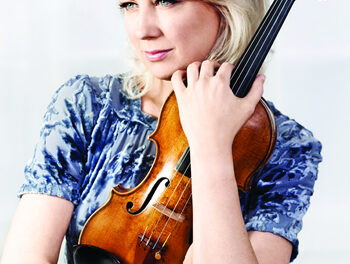The answer to the headline above, in this reviewer’s opinion and very likely that of the sold-out Duke Performances audience at Monday’s concert, is a resounding “yes”! The fully two hour set, with no intermission, was fast paced and consisted of a smorgasbord of Chucho Valdés‘ contributions to the birth and development of Afro-Cuban jazz over the past seven decades. He co-founded his band, Irakere* in 1973 and has been playing the piano since the age of three in 1944. Valdez was tutored by his father, the legendary pianist Ramón “Bebe” Valdés. (His biography can be found here.)
Not surprisingly, Irakere is rhythm centric and consists of three percussionists, electric and acoustic bass, three trumpets, tenor and alto saxophones, and, of course, piano. Of particular interest was percussionist Dreiser Durruthy Bombalé‘s use of the hand-played traditional Batá drums and vocals to introduce the opening tune with a slow rhythmic chant that eventually developed into an up-tempo dance piece. This format was adopted for a number of the pieces played. What a shame there was not room for a dance floor in Page Auditorium – Irakere was initially founded as a dance band that incorporated jazz.
Valdés’ skills as a pianist as well as a composer and arranger became evident on several subsequent pieces where not only did he establish the “feel” of a tune with the classic Cubano Son rhythm, or the (Son) Montuno, but his solo piano work on several occasions could have been taken for Liszt or Rachmaninoff! For example, he used his extraordinary technique to infuse a very rhythmic Salsa number with fluid and rapid arpeggios leading into quotes from the American popular songbook such as Romberg and Hammerstein’s “Softly as in a Morning Sunrise” and Harold Arlen’s “Over the Rainbow.” His solo pieces sometimes included a very gently rhythmic background, especially in the group’s final work of the evening – Valdes’ “Ode to his (Late) Father.” It was no less impressive.
However, this review would be amiss if it did not extoll the virtues of two extraordinary pieces. The first was a brilliant tribute to the origins of American Jazz in New Orleans; brilliant because it began as typical Cuban upbeat dance music (a timba) and gradually morphed into a traditional New Orleans march and Dixieland blues complete with solos from the trumpets and saxophones. Equally impressive was the interchange of rhythmic patterns by the percussionists, who as Cubans were able to mimic flawlessly the New Orleans style of playing.
The second piece was an Afro-(American) Indian work (“Afro-Comanche”) based on Indian drum patterns as well as African rhythms. Particularly remarkable was an acoustic bass solo (both pizzicato and arco) by Gastón Joya who managed to be simultaneously percussive and melodic while still keeping the feel of the Afro-Indian piece. This was followed by an equally outstanding solo played on trap drums by Rodney Barreto – not surprising since he comes from a prestigious Cuban family and was formerly a professor of percussion in Havana .
Again, unsurprisingly, the audience was not about to let Irakere escape without an encore in the newly renovated Page Auditorium with its improved acoustics. A classic Salsa was duly rendered with appropriately high energy and “choreographed” with enthusiastic vocals by Bombalé; it wasn’t quite a standing ovation but rather a dancing ovation….or at least it felt like it!
* The meaning of the band’s name “Irakere” is unclear. It was adopted by Cuban musicians and very likely has its origin in the Yoruba region of Nigeria.











